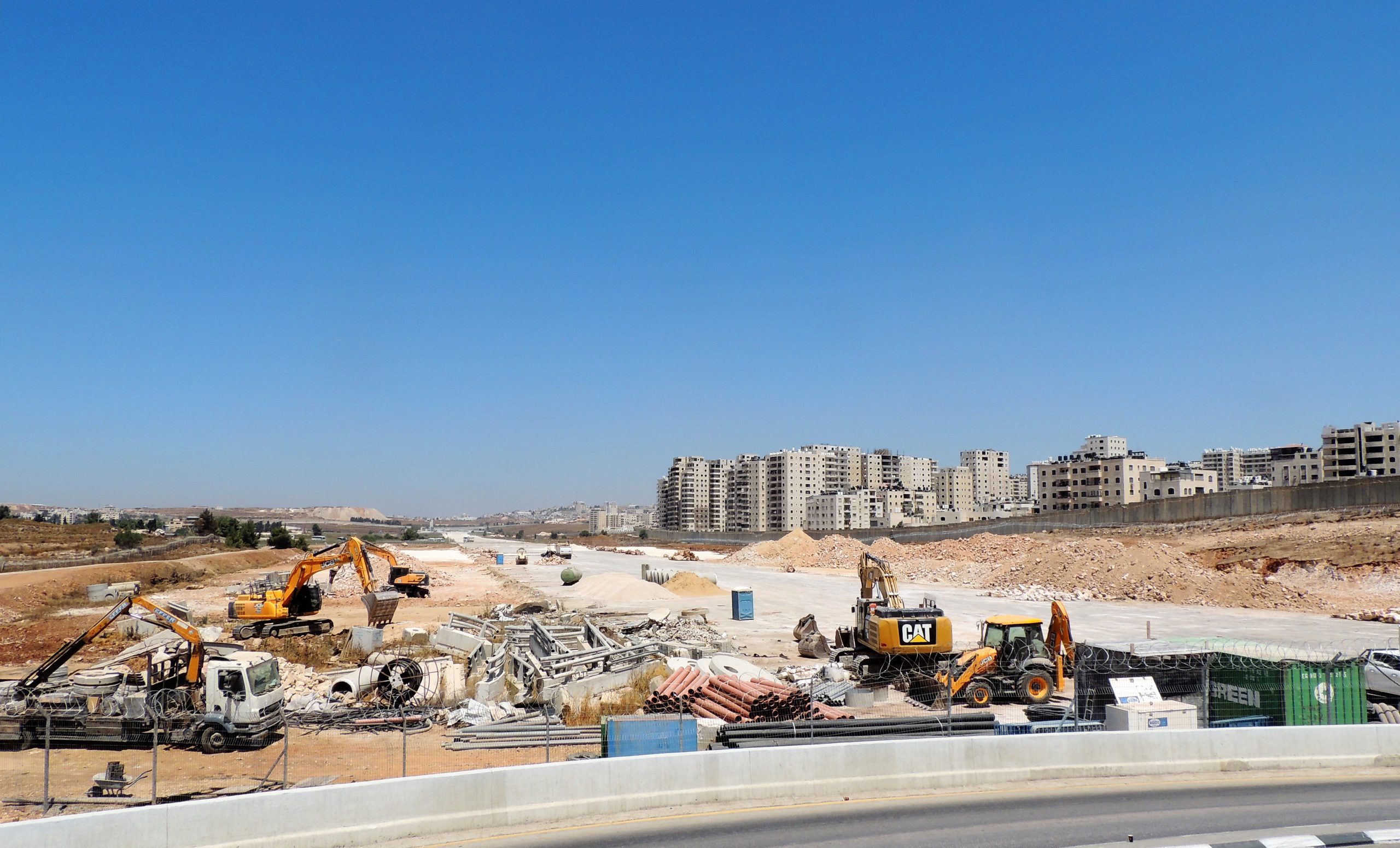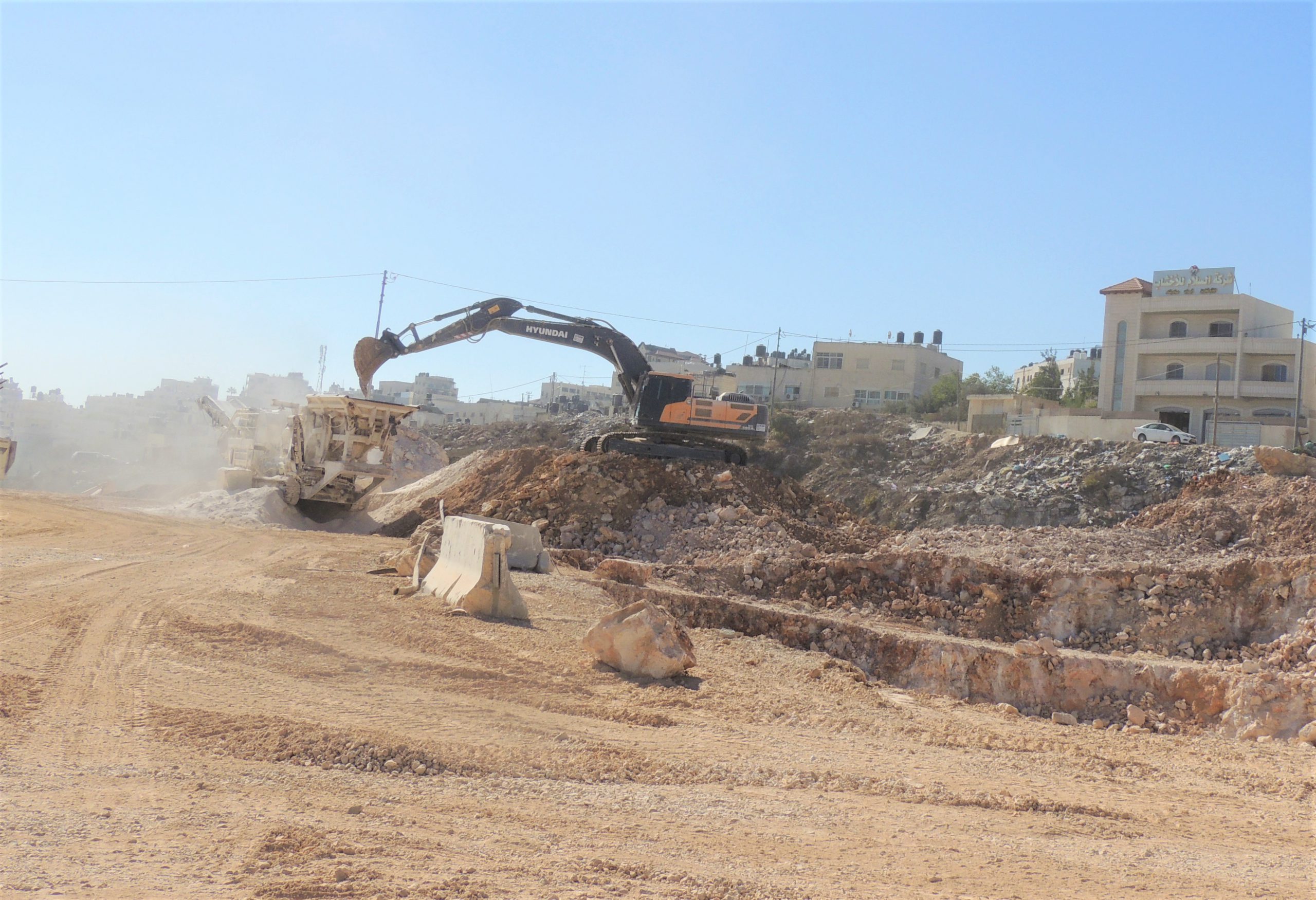The policy of the new government in the settlements since its establishment on 13/6/21 to 26/10/21
The Bennett-Lapid government, formed on 13/6/21, declared a “status quo” in the settlements policy. An examination of the first four and a half months of the government shows that the status quo has not been maintained in everything related to the settlements, and the government has actively worked to promote settlements and deepen the Israeli occupation of the territories.
The following is a partial list of developments in the settlements since 13/6/21:
A. Promoting plans in the settlements:
Plans for 3,000 housing units in the settlements – On Wednesday 27/10/21, the High Planning Council of the Civil Administration approved close to 3,000 housing units in the settlements. 90% of the housing units are in settlements that Israel will have to evacuate under an agreement (according the lines of the Geneva Initiative). Among the plans, thousands of units in settlements deep in the West Bank: 628 housing units in Eli, 399 housing units in Revava, 286 housing units in Har Bracha and 380 housing units in Kedumim.
Tenders for 1,355 housing units in the settlements – On October 24, 2021, tenders were published for 1,355 housing units in the settlements (and another 83 in Givat Hamatos in East Jerusalem), including a dramatic expansion of the settlement of Ariel, with 731 units.

Works in the Atarot/Qalandiya airport for parking for busses
New settlement in Atarot – The government is promoting a plan that is considered lethal in terms of the prospect of peace and a two-state solution with 9,000 (!) housing units in the heart of a Palestinian urban continuum between Ramallah-Kfar Aqab Qalandiya and A-Ram, in the area of the old Atarot / Qalandiya airport. The plan was prepared by the Ministry of Housing in recent years, but was never brought for approval so far. Under the new government, a discussion was scheduled for the deposit of the plan for December 6, 2021, in the Jerusalem District Planning and Construction Committee. In other words, the plan, which until now was only a drawing on some planners papers, will become, at the initiative of the current government, a legal document and will begin the procedure of approval (which can take about a year or two). It is way much easier politically to stop the plan now, rather than after it starts the approval process.
The settlement in E1 – The E1 plan is known as a plan that could land a fatal blow to the prospect of peace and a two-state solution. Although the plan was deposited by the previous government, the discussion of the objections (which is essential to advance the plan) was set by the current government and took place on 18/10/21 (another discussion will take place on 8/11/21).
Givat Hamatos – Like Atarot and E1, the plan in Givat Hamatos is considered deadly in terms of the prospect of peace and a two-state solution. The tender for the construction of the settlement was published and awarded before the formation of the new government, but the new government is not taking any steps to stop construction or delay it. During Foreign Minister Lapid’s visit to Washington in October 2021, the local committee in Jerusalem approved the expropriations required to implement the plan. On October 24, a tender was published for 83 housing units in Givat Hamatos, that were not awarded at the original tender.

Works on the Qalandiya underpass road, October 2021
B. Construction on the ground
Construction of a New settlement in Hebron – In the week of October 20, construction work began on 31 new housing units in the heart of the Palestinian city of Hebron. Although the approval and budgeting were set by the previous government, the start of implementation is that of the current government. It should be noted that since the 1980s, no new settlements have been built in the heart of the Hebron (except for one building in Tel Rumeida in 2002).
Qalandiya Underpass – Work on the Qalandiya underpass, the road that could dramatically change the development of settlements deep in the West Bank in the Ramallah and northern areas, began a few days before the formation of the government. When the government took office, the works were in the very early stages and it was relatively easy to stop them and save a lot of money.
C. New outposts

Mevo’ot Yericho Farm, established in August 2021
The Eviatar outpost – established at the beginning of the government’s path, and instead of evacuating it, the government agreed to leave the buildings in the area and place soldiers to guard them, while promising to legalize the outpost if it turns out to be legally possible. Since then, the soldiers have been subjected to daily attacks by stones and fireworks, and in clashes with the demonstrators, at least seven Palestinians have been killed by IDF fire.
Mevo’ot Yericho Farm – an agricultural outpost established in August 2021 near the settlement of Mevo’ot Yericho, north of Jericho. Palestinians testified that settlers from the new farm have harassed them, blocked their way and threatened the Palestinian shepherds and Palestinian workers at a nearby Palestinian construction site (in Area A).
Karnei Re’em Farm – After trying to establish a farm in the Khirbet Shehadeh area (in the lands of Deir Istia), in August 2021 a new agricultural farm was established near the Havat Yair outpost, on the lands of Deir Istia. A house and a dwelling were built in the outpost, and it is manned, but as far as we know, a herd has not yet arrived there.
Ramat Migron – At the beginning of the year, a small farm was established on the hill on which the Migron outpost used to be. On October 7, 2021, land was prepared to upgrade the farm with the potential for a large herd similar to the recognized agricultural outposts. To date, no enforcement action has been taken against it.
It should be noted that the Ministry of Agriculture has admitted that it funds organizations that assist agricultural outposts in the territories.
D. Settler violence
There is hardly a day without settler attacks on Palestinians, farmers and their property. The harvest season this year is particularly violent with hundreds of olive trees cut down and hundreds of olive trees stolen from it by settlers, and many physical attacks against Palestinian famers. The government dosen’t do much (if at all) to stop it and we almost didn’t hear the Ministers speak out against those acts which must not be passed over in silence.
E. Demolitions for Palestinians
The graph of demolition of Palestinian buildings in the territories is rising dramatically. In the four months since 13/6/21 to date 260 buildings have been demolished in Area C which is roughly the amount demolished in all of 2017 (according to OCHA data). On 7/7/21 the IDF tried to expel an entire community from Humsa in the Jordan Valley – buses were sent to pick up the residents (who eventually refused to board). All the residents’ personal equipment was loaded onto trucks and dumped at another point in the desert, a few kilometers away. Such an attempt of transfer has not been made in recent years by previous governments.
F. Sheikh Jarrah and Silwan
Thousands of Palestinians in East Jerusalem are in various stages of eviction lawsuits filed against them by settlers, Sheikh Jarrah and Silwan. All claims are based on a discriminatory law that allows “right of return” for Jews to properties from before 1948 (something that is forbidden to Palestinians).
The matter is ostensibly legal but is in fact a political matter and the government was given an opportunity to help prevent the injustice but it refrained from doing so. The court asked the Attorney General to appear in Batan Al-Hawa case, and in Sheikh Jarrah it was the Palestinian residents who sought his appearance, but in both cases the AG avoided to intervene.
G. budget
This week it was announced that “the coalition funds” have been increased by NIS 600 million to NIS 2 billion. A significant portion of these funds is intended for settlements and projects related to settlements, among others: NIS 20 million for the integration of civilians in the supervision of the construction of Palestinians in the territories; NIS 186 million for the Settlement Division; NIS 10.6 million for support of volunteers in agriculture (many of them in outposts); NIS 70 million for the University of Ariel, and more.

